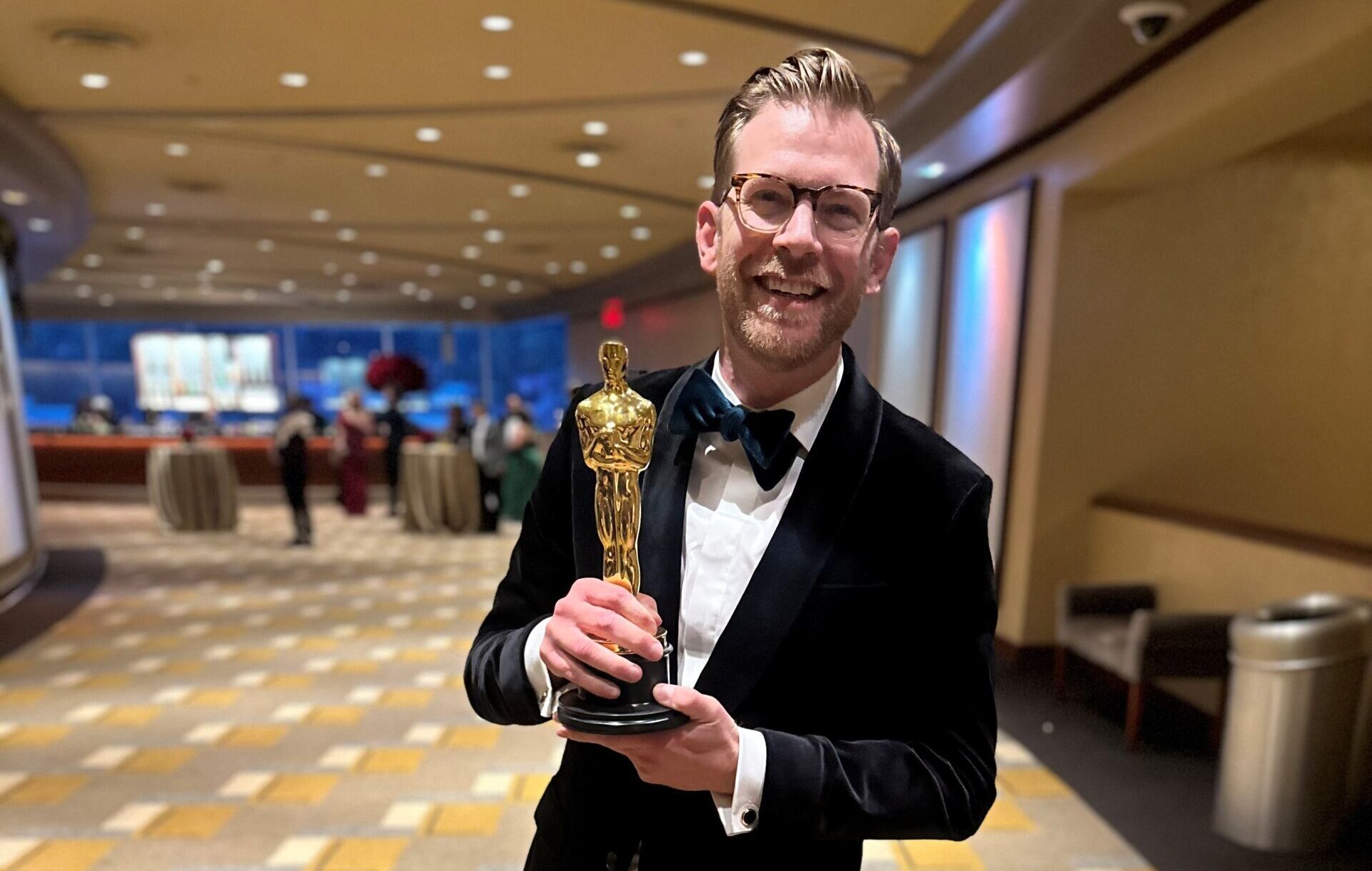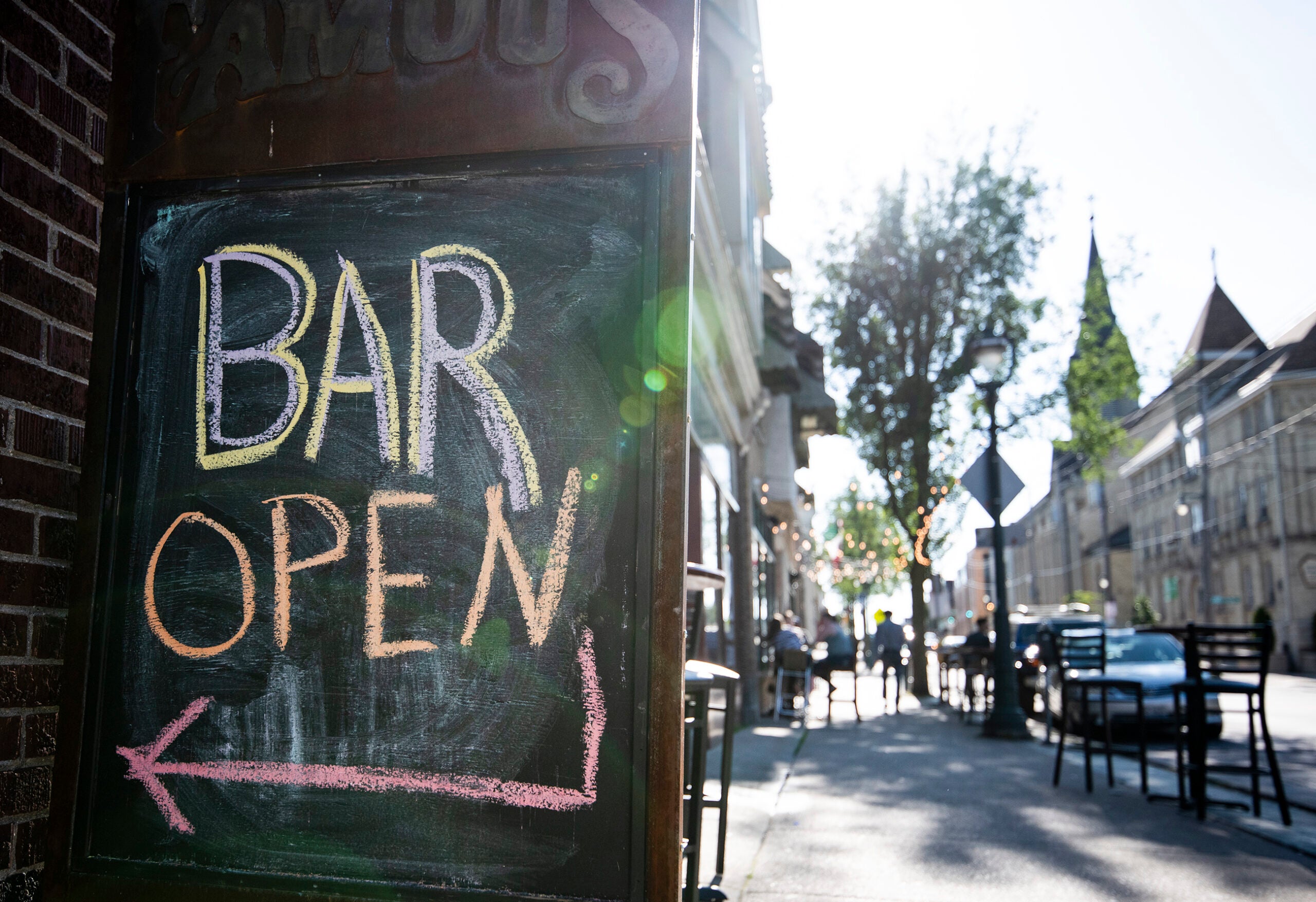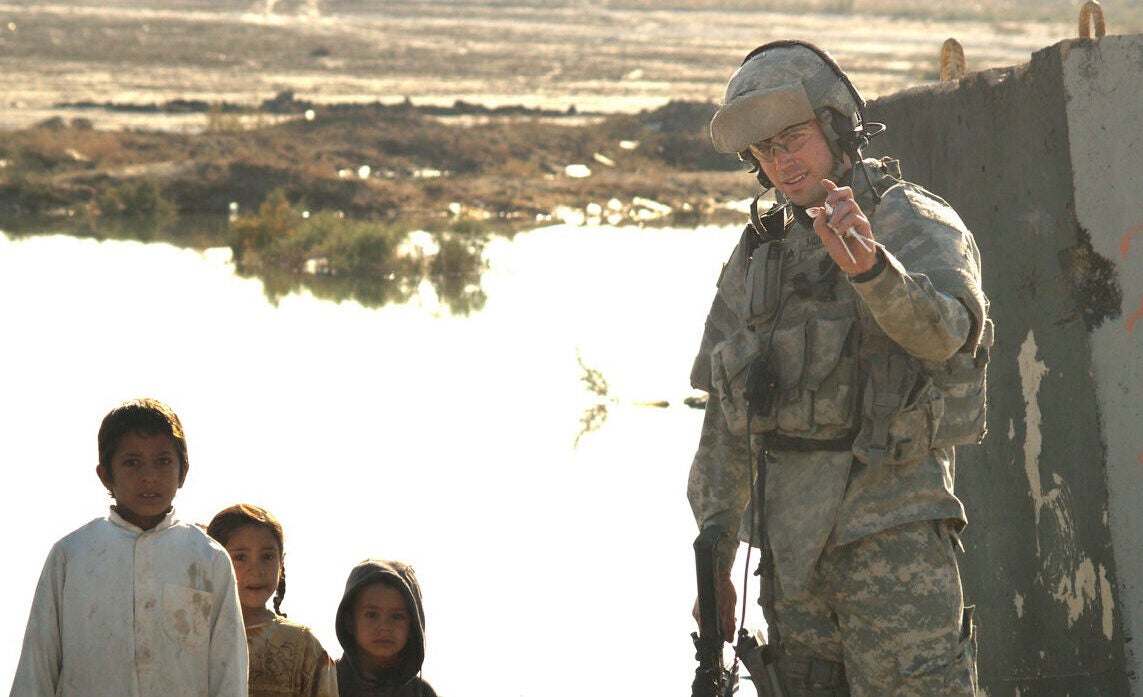At the end of the Oscar-winning short documentary, “The Last Repair Shop,” the credits roll over a musical performance by Los Angeles public school students and alumni. The credits include “Palms Middle School Class of 2028” and “Venice High School Class of 1970.”
The credits also name Josh Rosenberg, a Green Bay native and University of Wisconsin-Milwaukee alum who worked on the film as a producer — or one of those people who handle film logistics like tracking budgets, getting the crew whatever props they need and assigning tasks in accordance with a director’s vision.
“Everything that you need in that room and everything all the people that are in that room are going to need to do their jobs, you have got to get in that space,” Rosenberg said recently on WPR’s “The Morning Show.”
Stay informed on the latest news
Sign up for WPR’s email newsletter.
While discussing his work on “The Last Repair Shop,” Rosenberg said the film about technicians fixing broken instruments deserved end credits better than names on a black screen. The musical performance of students and alumni turned out to be one of the most memorable shoots of the whole film, he said. Rosenberg estimated about 100 people were on set, including the 60-person orchestra, at the famous Warner Bros. Eastwood Scoring Stage.
“It was complete all hands on deck. We needed every available body,” he said. “But we were able to capture such an incredible, fitting ending to a really beautiful film.”
On “The Morning Show,” Rosenberg also shared advice for college students and described his reaction to the Oscar win.
The following was edited for brevity and clarity.
Kate Archer Kent: As you look back, what do you wish you learned during college about film production?
Josh Rosenberg: It’s always great for young filmmakers to get on sets as early as possible. So, that would be my one thing. When you’re young and you can work for free or you have that flexibility, just get on as many sets as possible.
I went to school for broadcast journalism at UW-Milwaukee and had such great experiences across the board. I got to do an internship at WUWM. I was so, so delighted with the experiences that I got while going to school in Milwaukee.
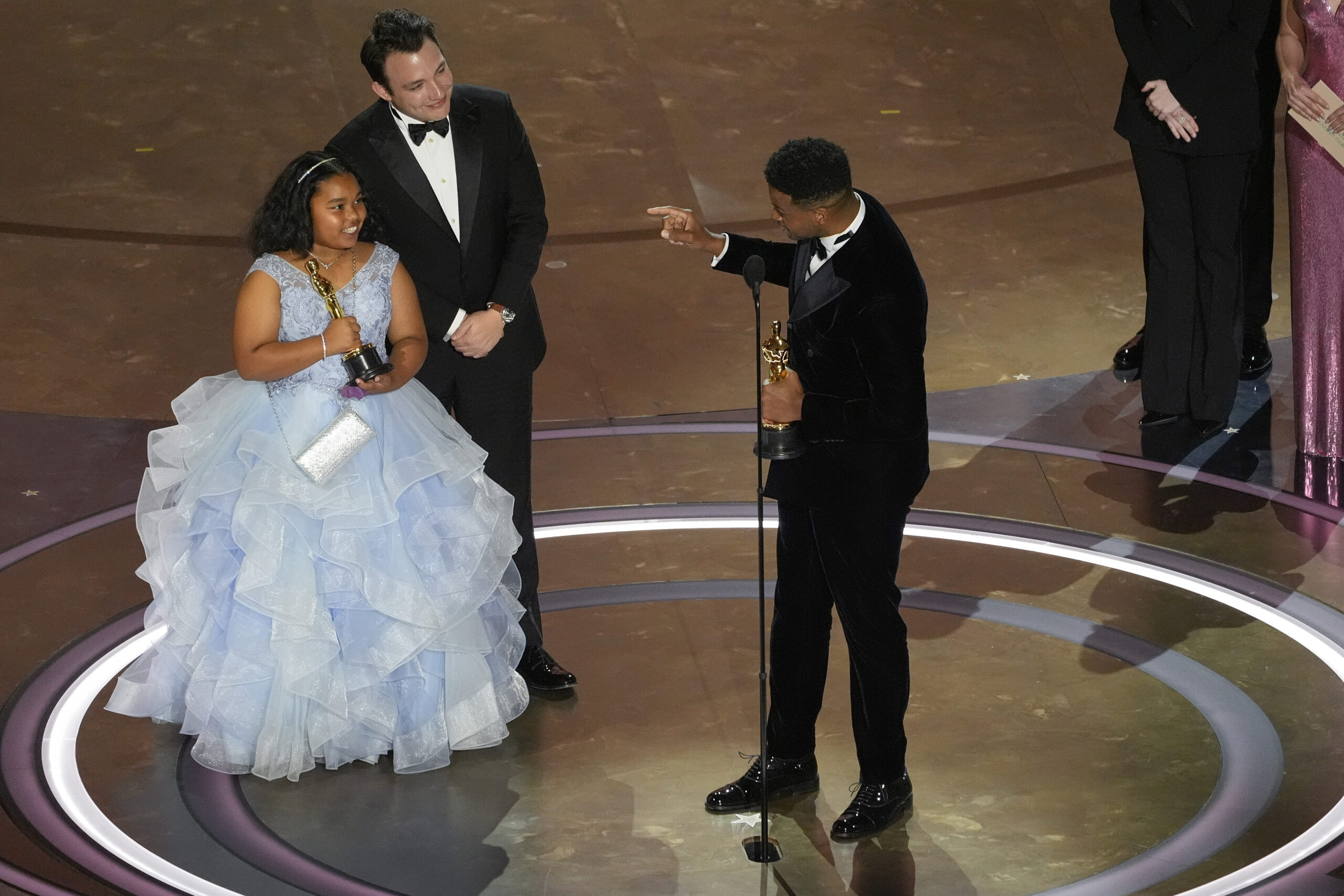
KAK: How did it feel as your team accepted the Oscar for best documentary short film?
JR: It was just incredible. One of the things that we focus on with the films that we make at Breakwater Studios where I work is highlighting people who haven’t gotten their due. In this film, we have four repair people who have done all of this work in the shadows. For the kids, the instrument breaks and it comes right back to them. They don’t even know all the work that goes into it.
To be there at the Oscars with the repair people and then also we had two of the (Los Angeles Unified School District) students with us and seeing it reflected in their eyes — in this environment — they’re often not in the spotlight. To see them on the red carpet — and if you watch the telecast, you got to see one of the students, Porché Brinker, walk up on stage — that was one of the great moments of the telecast. Seeing it through their eyes was just so amazing.
KAK: The Los Angeles public school district says 80 percent of its students come from families living in poverty. What did you learn about the significance of free instruments and free instrument repairs as a service for students and their families?
JR: It’s everything. It’s giving kids the opportunity to dream. It’s giving them the space to look over the corner of their circumstance. That is one of the things that we really felt from the repair folks and that we’ve gotten reflected back to us in the community. … Giving people the opportunity to (rise) beyond their circumstance.
Kris Bowers, our co-director on the film, said eloquently in his speech that it’s not about creating world class musicians. Those people are probably going to become world class musicians regardless of if they have a freely repaired instrument. It’s about creating amazing people. … When you really hammer down to it, the percentage of people who are going to go on to be a concert pianist and famous recording artist, it’s like the 1 percent of the 1 percent. But the true impact is what you’re actually giving to the community.
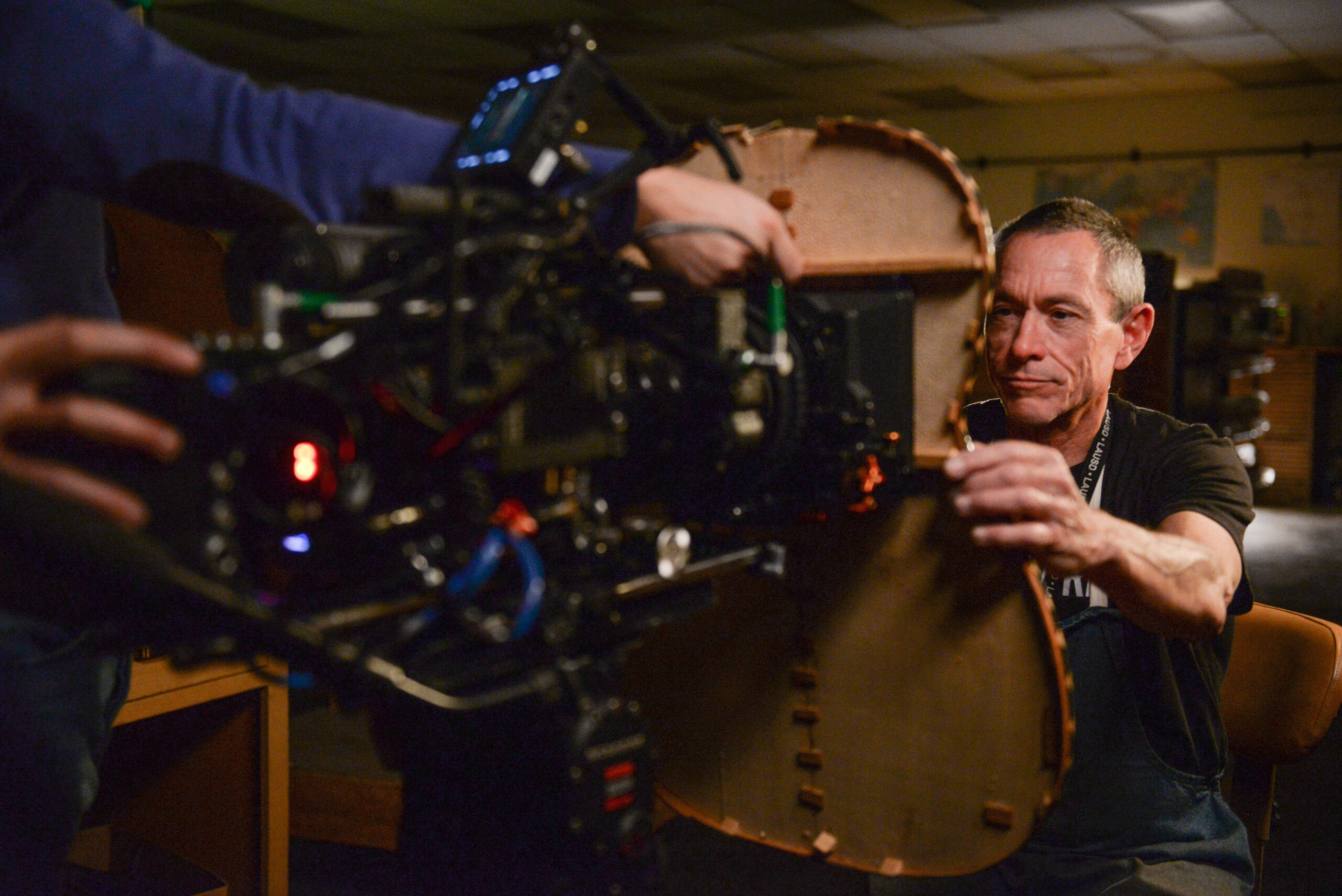
KAK: It seems like people have really reacted to these stories and this film. What can you tell us about the latest fundraising effort?
JR: We really want to see how we can use all this publicity and all this excitement to enact real change. We’ve launched a $15 million capital campaign that is a big goal, and it’s not going to be accomplished overnight. Before we did this film, a lot of the people in LAUSD and in its leadership didn’t even know the repair shop existed.
Closing the repair shop is a decision that a lot of cities around our country have made. It’s a line item in a budget and, “Oh, we can’t spend that. Let’s cut that.” We want to make it so ingrained in Los Angeles that the idea to eliminate the repair shop here at LAUSD is never on the table again. That’s our focus. We have a website where if anybody was motivated and excited by the film, we’ll take whatever you can contribute.
Our goal is for this to be so successful that other communities around the country say, “Hey, we need that. We need that in Milwaukee, or we need that in Green Bay.” That’s our dream. We feel if we can get more repair shops opened up and can bring this experience to more students around the country, it’d be such a joy.
Wisconsin Public Radio, © Copyright 2025, Board of Regents of the University of Wisconsin System and Wisconsin Educational Communications Board.
